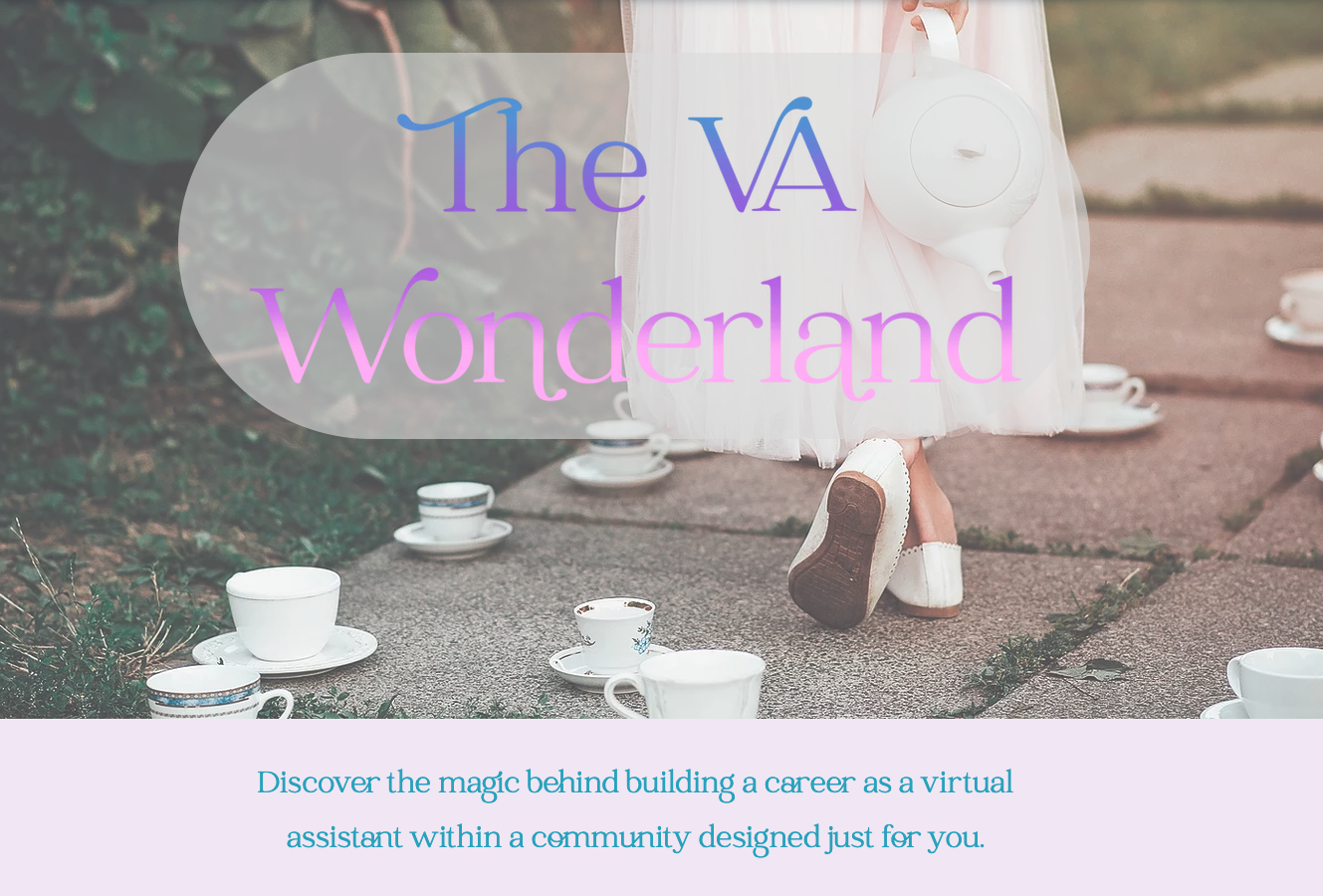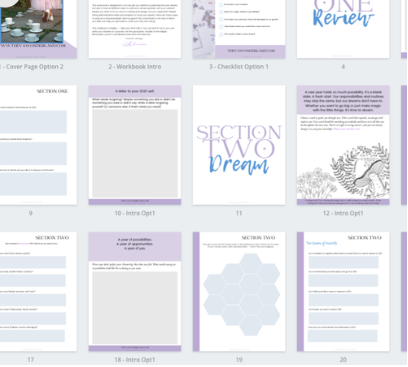THE VA WONDERLAND
The VA Wonderland offered training, services and tools aimed at educating others (primarily military spouses) on how to get started building a career as a virtual assistant. From conception to reality, I jumped down the rabbit hole and went through the looking glass to build a program founded on education, support and community.
-CASE STUDY-
The Challenge
The military spouse community is incredibly unique in that not only are they one of the most highly educated groups in the country, but they are vastly unemployed as well.
Many military spouses feel limited in career prospects as their lifestyle is filled with uncertainty and the need to adapt to ever-changing situations.
Virtual assistant work is a perfect fit for their needs, however, many spouses remain skeptical about the ability to grow an actual career while dealing with the unique constraints that come with a military-first lifestyle.
The biggest hurdle was to both raise awareness for this type of work and this training community while also convincing military spouses that this was not just another MLM-style program.
The Plan
Since many military spouses were not even aware of virtual assistant or remote work opportunities (this was all pre-Covid), the first task was to strategize a plan to raise awareness about both remote work opportunities as well as how to get started in this line of work.
I crafted creative messaging to highlighting the struggles military spouses faced when trying to not only find work, but trying to grow and maintain a career. From highlighting the frustrations and pain points, I then offered a solution: remote work. Specifically, virtual assistant work. Work that could not only grow into a career, but work that could travel with them no matter where the military sent their families next.
It was important to me to craft the messaging in a very honest and open way. While I wanted to highlight the pros of this style of work and how it could benefit military spouses who wanted careers, I also wanted military spouses to understand this was by no means a quick, easy path to success. This program was designed to work with spouses who were ready to put in the work to build a lasting career, not for those who simply wanted part time work.
The messaging for this included personal testimonial of things I, a fellow military spouse, had tried over the years — part time retail work, online certification courses, MLMs — and why those options did not work for what I envisions for myself or my career. However, many of those odd jobs taught me highly marketable skills that transition easily to skills in high demand for virtual assistance.
An integrated community relations and social media campaign highlighted this messaging through community outreach with military spouse programs (both on base and online), Facebook, Instagram and Pinterest management. As a way to build interest in the program while also providing market research to how to improve the program over time, I offered the first month for free and capped the first round of the program to only 20 spouses. This beta test group was also given an introductory pricing that they could keep for their duration within the program.
The Results
During the month long promotion leading up to the launch of the first course, I managed to secure 18 spouses to fill the spots for beta testing the program. I offered several months of training along with templates members could use to help kick start their own virtual assistant business. There were private coaching calls where members were able to ask any questions regarding the course material as well as a community job board — available to spouses who had completed a certain level of training.
While I ultimately decided that an evergreen approach to the course was easier to manage on my own than a subscription model, I consider this project to be a success if only for the fact that several members of the beta class continue to work as virtual assistance to this day.










